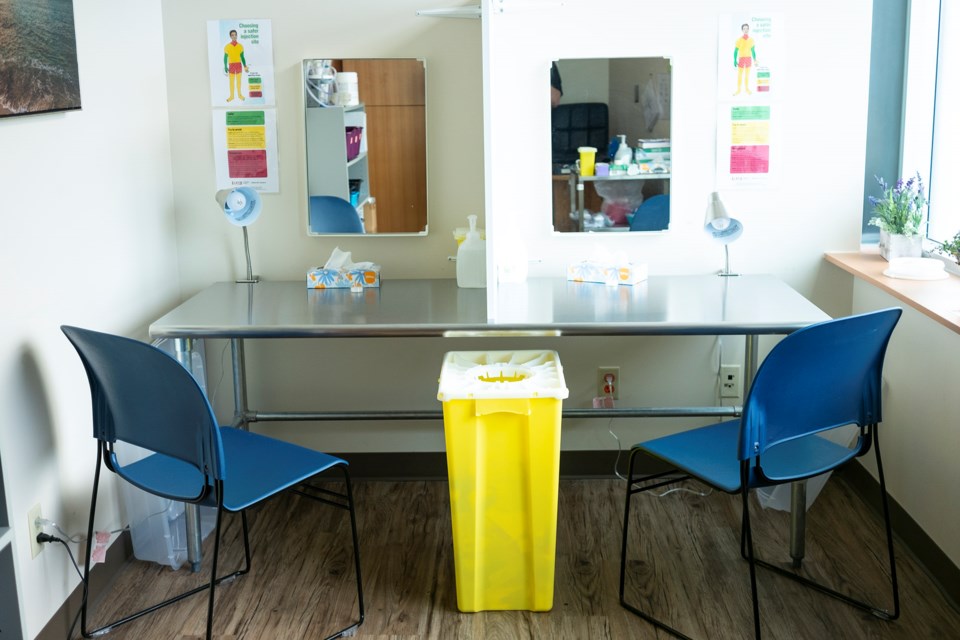Guelph’s overdose prevention site will remain open and those that run it are confident it will become permanent following new regulations announced by the provincial government on Monday.
The Wyndham Street location was set to close at the end of the month when its exemption ran out.
“This is very good news for the Guelph community and for people who rely on our doors remaining open, we’re really pleased,” said Raechelle Devereaux, executive director of the Guelph Community Health Centre which hosts the site.
The site has seen 2,100 visits from 250 individuals since opening in lat May. Staff have intervened in 20 overdoses.
On Monday the province announced a new program, called Consumption and Treatment Services, will replace the existing model for overdose prevention sites and safe consumption sites.
Devereaux said the Guelph site will now remain open and in January will apply to be one of the 21 permanent sites established under that new model.
Those 21 locations are expected to be established by April.
“Yes, there is an application process, but I remain confident through that,” Devereaux said.
The new model requires the 21 sites to offer a broad range of services connecting clients that use them to a variety of programs, including primary health care, mental health support and housing.
Devereaux said that the Guelph overdose prevention site is already in line with the new requirements.
“It’s core to the model of community health and well-being that community health centres deliver, but it’s also really critical to exactly what’s received at the existing overdose prevention site, which is connecting people to primary health care, to food services, to withdrawal management, to essentially treatment services,” she said.
The new model also calls for increased community engagement and more accountability to the government.
Devereaux said the Guelph site currently has community engagement, opening its doors for tours and information sessions, but a “more robust” community engagement process is in the works.
The sites will also be held accountable to the province, with an ongoing monitoring and reporting plan, as well as an enforcement and audit protocol.
“This would help review performance, provide measurable outcomes and ensure compliance,” the province said in its news release..
"Services provided under the new Consumption and Treatment Services model would better address the physical and mental health as well as social needs of people addicted to opioids and other drugs,” said Christine Elliott, Minister of Health and Long-Term Care, in a news release.
“Our new delivery model would provide a pragmatic approach to overdose prevention, rooted in a relentless focus on getting people the help that they need by connecting them to treatment."
Guelph MPP Mike Schreiner was pleased the sites will continue, but critical of there being a “hard cap” on the number of sites.
“Limiting the total number of sites where people can access these life-saving services is wrong. It is also wrong to prohibit temporary sites that save lives.
Today, the Minister of Health herself acknowledged the overdose crisis is getting worse, so how can she can square this reality with her decision to put a moratorium on new sites?
A hard cap means that where this crisis grows worse, communities will be prevented from opening new sites to help at-risk populations and offer life-saving services.
The province began a review of overdose prevention sites in July. Their review reinforced many of the positive aspects of the sites, including a reduction in illness and death from overdoses as well as a lower rate of public drug use and needle sharing.
But one of the key findings was the need to address public concerns that have been raised about the sites.
“The new delivery model would not only be equipped to reverse overdoses, it would also include an enhanced and necessary focus on connecting people who use drugs to primary care, treatment and rehabilitation, and other health and social services. Existing operators could apply to continue delivering services under this planned new model.”
